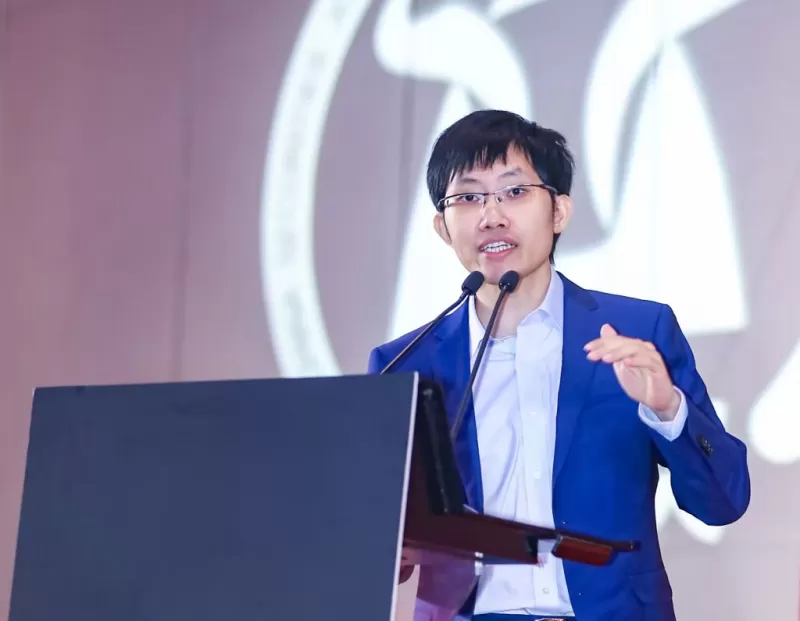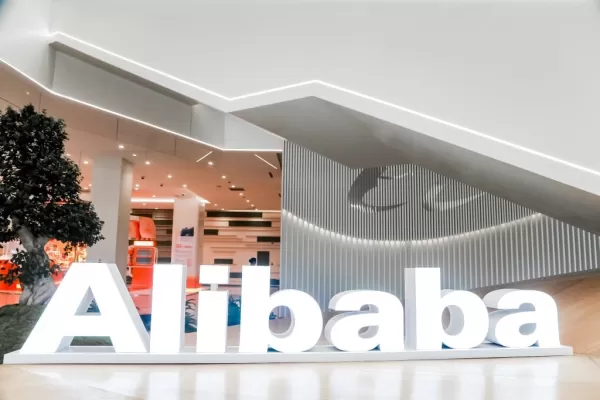DeepSeek Shuns VC Funding: 3 Key Reasons

DeepSeek, a leading AI startup that's been making waves globally, especially after its latest model shook up Silicon Valley, is taking a unique approach to funding. Founder Liang Wenfeng isn't rushing to accept outside investments, despite the buzz and interest from venture capitalists (VCs), according to a recent Wall Street Journal report.
Unlike other AI model providers who frequently announce large funding rounds with big-name investors, Liang has kept quiet about any fundraising efforts. This silence has even led to unfounded stock market rallies in China, fueled by rumors about potential investors.
Liang's Control and Vision
A TechCrunch analysis of Chinese corporate records reveals that Liang holds an 84% stake in DeepSeek, with the remaining shares owned by individuals connected to his hedge fund, High-Flyer. This structure allows DeepSeek to operate more like a solo venture, free from the typical external influences that come with outside capital.
Liang's reluctance to accept VC funding stems from his past experiences. In a 2023 interview with Chinese media, he expressed frustration with VCs' focus on quick monetization rather than fundamental research. This misalignment with his vision for DeepSeek is a key reason he's hesitant to share control, as reported by the WSJ.
Self-Funding and Challenges
While most startups rely on external funding from the get-go, DeepSeek has been able to bootstrap its operations using profits from High-Flyer. "Money has never been the problem for us; bans on shipments of advanced chips are the problem," Liang stated in 2023.
However, being a Chinese company, DeepSeek faces strict government regulations that allow broad data access. This has led to increasing bans from various governments and private companies, concerned about data privacy and security. Accepting funding from Chinese investors could exacerbate these issues, given similar concerns about their ties to the government.
The U.S. has a track record of sanctioning Chinese tech firms perceived as close to the government, like Huawei and DJI. Despite this, some Chinese state entities have approached DeepSeek for investment, though there's no evidence that DeepSeek has taken them up on the offer, according to The Information.
Shifting Dynamics
While DeepSeek has been self-funded so far, the landscape might be changing. Earlier this month, the company announced a theoretical profit margin for the first time, hinting at a move toward monetization—a shift that could make it more appealing to VCs.
To keep pace with other AI giants, DeepSeek will likely need more advanced AI chips, which are both expensive and heavily restricted in China due to U.S. export controls. These chips represent the biggest hurdle to DeepSeek's development, as Liang noted in 2023.
Moreover, DeepSeek's ability to self-fund may be waning. High-Flyer's flagship funds have underperformed since 2022, and the Chinese government has been cracking down on quant funds like High-Flyer since 2024, according to the WSJ.
Despite no concrete names being mentioned, DeepSeek has reportedly caught the eye of tech giants Tencent and Alibaba. The company did not immediately respond to requests for comment on these developments.
Related article
 ByteDance Unveils Seed-Thinking-v1.5 AI Model to Boost Reasoning Capabilities
The race for advanced reasoning AI began with OpenAI’s o1 model in September 2024, gaining momentum with DeepSeek’s R1 launch in January 2025.Major AI developers are now competing to create faster, mo
ByteDance Unveils Seed-Thinking-v1.5 AI Model to Boost Reasoning Capabilities
The race for advanced reasoning AI began with OpenAI’s o1 model in September 2024, gaining momentum with DeepSeek’s R1 launch in January 2025.Major AI developers are now competing to create faster, mo
 Alibaba Unveils Wan2.1-VACE: Open-Source AI Video Solution
Alibaba has introduced Wan2.1-VACE, an open-source AI model poised to transform video creation and editing processes.VACE is a key component of Alibaba’s Wan2.1 video AI model family, with the company
Alibaba Unveils Wan2.1-VACE: Open-Source AI Video Solution
Alibaba has introduced Wan2.1-VACE, an open-source AI model poised to transform video creation and editing processes.VACE is a key component of Alibaba’s Wan2.1 video AI model family, with the company
 Huawei CEO Ren Zhengfei on China's AI Ambitions and Resilience Strategy
Huawei CEO Ren Zhengfei shares candid insights on China's AI landscape and the challenges his company faces."I haven't dwelled on it," Ren states in a People’s Daily Q&A. "Overthinking is futile."In a
Comments (23)
0/200
Huawei CEO Ren Zhengfei on China's AI Ambitions and Resilience Strategy
Huawei CEO Ren Zhengfei shares candid insights on China's AI landscape and the challenges his company faces."I haven't dwelled on it," Ren states in a People’s Daily Q&A. "Overthinking is futile."In a
Comments (23)
0/200
![EricDavis]() EricDavis
EricDavis
 August 17, 2025 at 11:00:59 PM EDT
August 17, 2025 at 11:00:59 PM EDT
DeepSeek這波操作真大膽!居然敢拒絕VC的錢,感覺像是在說『我自己能行』😎 創辦人這份自信是哪來的?不過不靠外部資金,後續擴張會不會有點吃力啊?


 0
0
![JasonKing]() JasonKing
JasonKing
 August 16, 2025 at 9:01:00 AM EDT
August 16, 2025 at 9:01:00 AM EDT
DeepSeek's bold move to skip VC funding is intriguing! Feels like they're playing a long game, betting on self-sustainability. Smart or risky? 🤔


 0
0
![AndrewHernández]() AndrewHernández
AndrewHernández
 July 30, 2025 at 9:41:19 PM EDT
July 30, 2025 at 9:41:19 PM EDT
DeepSeek's move to avoid VC funding is bold! It’s like they’re saying, ‘We got this, no strings attached.’ Curious how they’ll scale globally without that cash, though—gutsy or risky? 🤔


 0
0
![JackMitchell]() JackMitchell
JackMitchell
 April 21, 2025 at 10:08:19 PM EDT
April 21, 2025 at 10:08:19 PM EDT
DeepSeek's approach to funding is pretty bold! I respect Liang Wenfeng's decision to stay independent, but I'm curious if they can sustain growth without VC money. It's a risky move, but I'm rooting for them! 🍀


 0
0
![StephenGreen]() StephenGreen
StephenGreen
 April 21, 2025 at 9:28:28 PM EDT
April 21, 2025 at 9:28:28 PM EDT
DeepSeekの資金調達方法は大胆だと思います!梁文峰さんが独立を選ぶ決断を尊敬しますが、VCの資金なしで成長を維持できるか気になります。リスクは高いけど、応援しています!🍀


 0
0
![LunaYoung]() LunaYoung
LunaYoung
 April 20, 2025 at 11:35:01 AM EDT
April 20, 2025 at 11:35:01 AM EDT
A abordagem de financiamento da DeepSeek é bastante ousada! Eu respeito a decisão de Liang Wenfeng de permanecer independente, mas fico curioso se eles podem sustentar o crescimento sem dinheiro de VC. É um movimento arriscado, mas estou torcendo por eles! 🍀


 0
0

DeepSeek, a leading AI startup that's been making waves globally, especially after its latest model shook up Silicon Valley, is taking a unique approach to funding. Founder Liang Wenfeng isn't rushing to accept outside investments, despite the buzz and interest from venture capitalists (VCs), according to a recent Wall Street Journal report.
Unlike other AI model providers who frequently announce large funding rounds with big-name investors, Liang has kept quiet about any fundraising efforts. This silence has even led to unfounded stock market rallies in China, fueled by rumors about potential investors.
Liang's Control and Vision
A TechCrunch analysis of Chinese corporate records reveals that Liang holds an 84% stake in DeepSeek, with the remaining shares owned by individuals connected to his hedge fund, High-Flyer. This structure allows DeepSeek to operate more like a solo venture, free from the typical external influences that come with outside capital.
Liang's reluctance to accept VC funding stems from his past experiences. In a 2023 interview with Chinese media, he expressed frustration with VCs' focus on quick monetization rather than fundamental research. This misalignment with his vision for DeepSeek is a key reason he's hesitant to share control, as reported by the WSJ.
Self-Funding and Challenges
While most startups rely on external funding from the get-go, DeepSeek has been able to bootstrap its operations using profits from High-Flyer. "Money has never been the problem for us; bans on shipments of advanced chips are the problem," Liang stated in 2023.
However, being a Chinese company, DeepSeek faces strict government regulations that allow broad data access. This has led to increasing bans from various governments and private companies, concerned about data privacy and security. Accepting funding from Chinese investors could exacerbate these issues, given similar concerns about their ties to the government.
The U.S. has a track record of sanctioning Chinese tech firms perceived as close to the government, like Huawei and DJI. Despite this, some Chinese state entities have approached DeepSeek for investment, though there's no evidence that DeepSeek has taken them up on the offer, according to The Information.
Shifting Dynamics
While DeepSeek has been self-funded so far, the landscape might be changing. Earlier this month, the company announced a theoretical profit margin for the first time, hinting at a move toward monetization—a shift that could make it more appealing to VCs.
To keep pace with other AI giants, DeepSeek will likely need more advanced AI chips, which are both expensive and heavily restricted in China due to U.S. export controls. These chips represent the biggest hurdle to DeepSeek's development, as Liang noted in 2023.
Moreover, DeepSeek's ability to self-fund may be waning. High-Flyer's flagship funds have underperformed since 2022, and the Chinese government has been cracking down on quant funds like High-Flyer since 2024, according to the WSJ.
Despite no concrete names being mentioned, DeepSeek has reportedly caught the eye of tech giants Tencent and Alibaba. The company did not immediately respond to requests for comment on these developments.
 ByteDance Unveils Seed-Thinking-v1.5 AI Model to Boost Reasoning Capabilities
The race for advanced reasoning AI began with OpenAI’s o1 model in September 2024, gaining momentum with DeepSeek’s R1 launch in January 2025.Major AI developers are now competing to create faster, mo
ByteDance Unveils Seed-Thinking-v1.5 AI Model to Boost Reasoning Capabilities
The race for advanced reasoning AI began with OpenAI’s o1 model in September 2024, gaining momentum with DeepSeek’s R1 launch in January 2025.Major AI developers are now competing to create faster, mo
 Alibaba Unveils Wan2.1-VACE: Open-Source AI Video Solution
Alibaba has introduced Wan2.1-VACE, an open-source AI model poised to transform video creation and editing processes.VACE is a key component of Alibaba’s Wan2.1 video AI model family, with the company
Alibaba Unveils Wan2.1-VACE: Open-Source AI Video Solution
Alibaba has introduced Wan2.1-VACE, an open-source AI model poised to transform video creation and editing processes.VACE is a key component of Alibaba’s Wan2.1 video AI model family, with the company
 August 17, 2025 at 11:00:59 PM EDT
August 17, 2025 at 11:00:59 PM EDT
DeepSeek這波操作真大膽!居然敢拒絕VC的錢,感覺像是在說『我自己能行』😎 創辦人這份自信是哪來的?不過不靠外部資金,後續擴張會不會有點吃力啊?


 0
0
 August 16, 2025 at 9:01:00 AM EDT
August 16, 2025 at 9:01:00 AM EDT
DeepSeek's bold move to skip VC funding is intriguing! Feels like they're playing a long game, betting on self-sustainability. Smart or risky? 🤔


 0
0
 July 30, 2025 at 9:41:19 PM EDT
July 30, 2025 at 9:41:19 PM EDT
DeepSeek's move to avoid VC funding is bold! It’s like they’re saying, ‘We got this, no strings attached.’ Curious how they’ll scale globally without that cash, though—gutsy or risky? 🤔


 0
0
 April 21, 2025 at 10:08:19 PM EDT
April 21, 2025 at 10:08:19 PM EDT
DeepSeek's approach to funding is pretty bold! I respect Liang Wenfeng's decision to stay independent, but I'm curious if they can sustain growth without VC money. It's a risky move, but I'm rooting for them! 🍀


 0
0
 April 21, 2025 at 9:28:28 PM EDT
April 21, 2025 at 9:28:28 PM EDT
DeepSeekの資金調達方法は大胆だと思います!梁文峰さんが独立を選ぶ決断を尊敬しますが、VCの資金なしで成長を維持できるか気になります。リスクは高いけど、応援しています!🍀


 0
0
 April 20, 2025 at 11:35:01 AM EDT
April 20, 2025 at 11:35:01 AM EDT
A abordagem de financiamento da DeepSeek é bastante ousada! Eu respeito a decisão de Liang Wenfeng de permanecer independente, mas fico curioso se eles podem sustentar o crescimento sem dinheiro de VC. É um movimento arriscado, mas estou torcendo por eles! 🍀


 0
0





























